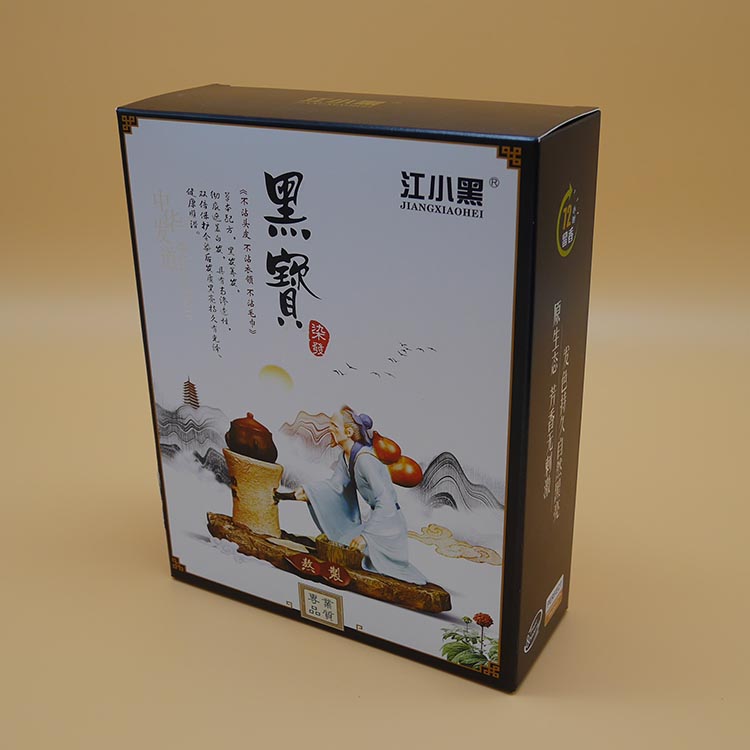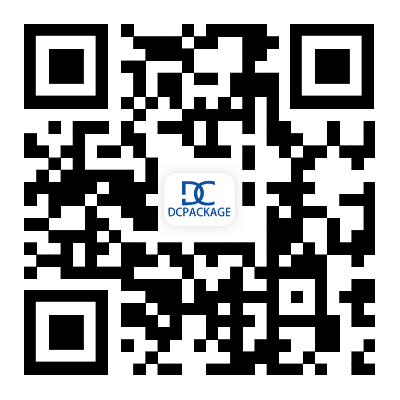 English
English Español
Español  Português
Português  русский
русский  Français
Français  日本語
日本語  Deutsch
Deutsch  tiếng Việt
tiếng Việt  Italiano
Italiano  Nederlands
Nederlands  ภาษาไทย
ภาษาไทย  Polski
Polski  한국어
한국어  Svenska
Svenska  magyar
magyar  Malay
Malay  বাংলা ভাষার
বাংলা ভাষার  Dansk
Dansk  Suomi
Suomi  हिन्दी
हिन्दी  Pilipino
Pilipino  Türkçe
Türkçe  Gaeilge
Gaeilge  العربية
العربية  Indonesia
Indonesia  Norsk
Norsk  تمل
تمل  český
český  ελληνικά
ελληνικά  український
український  Javanese
Javanese  فارسی
فارسی  தமிழ்
தமிழ்  తెలుగు
తెలుగు  नेपाली
नेपाली  Burmese
Burmese  български
български  ລາວ
ລາວ  Latine
Latine  Қазақша
Қазақша  Euskal
Euskal  Azərbaycan
Azərbaycan  Slovenský jazyk
Slovenský jazyk  Македонски
Македонски  Lietuvos
Lietuvos  Eesti Keel
Eesti Keel  Română
Română  Slovenski
Slovenski
How Do Folding Boxes Transform Packaging for Modern Businesses?
2025-09-23
In a rapidly evolving market, packaging is no longer just about protecting a product during transportation. It has become a critical element in branding, consumer perception, sustainability, and logistics efficiency. Among the many packaging solutions available, the folding box has emerged as one of the most versatile and widely used options across industries ranging from cosmetics to electronics, food, pharmaceuticals, and luxury goods.
A folding box is essentially a carton made from paperboard or corrugated material, designed to be shipped flat and then folded into its final form at the point of use. This simple yet ingenious concept has completely reshaped packaging because it allows manufacturers, suppliers, and retailers to minimize storage space, reduce transportation costs, and still deliver a professional and visually appealing packaging solution.
The reason folding boxes have gained global popularity lies in their adaptability. They can be customized in terms of dimensions, materials, finishes, printing, and design to meet the specific requirements of different industries. Whether a brand wants a minimalist eco-friendly look or a premium glossy finish that reflects luxury, folding boxes can be tailored accordingly.
Another advantage is sustainability. With consumer awareness about eco-friendly products increasing, businesses are under pressure to adopt packaging solutions that reduce environmental impact. Folding boxes made from recyclable paperboard or biodegradable materials directly support this goal while maintaining strength and durability.
At a practical level, folding boxes simplify supply chains. Being shipped flat means they take up significantly less space compared to rigid boxes, allowing warehouses to maximize storage capacity. At the same time, assembly is straightforward, often requiring just a few folds, which makes them convenient for manufacturers and retailers who need quick packaging solutions.
In short, folding boxes represent the perfect balance between functionality, cost-effectiveness, and branding potential. To understand how they truly benefit businesses, it is essential to look at their specifications and customizable features.
Technical Specifications and Customization Options of Folding Boxes
When evaluating folding boxes, businesses often compare technical parameters to determine suitability for their products. Below is a structured overview of the most important specifications:
| Parameter | Specification Details |
|---|---|
| Material Options | Paperboard (250–400gsm), Corrugated board (E-flute, B-flute), Kraft board, Recycled paper |
| Printing Techniques | Offset printing, Digital printing, Flexographic printing, UV printing |
| Finishing Options | Gloss lamination, Matte lamination, Spot UV, Foil stamping, Embossing/Debossing |
| Standard Thickness | 0.3mm – 2.5mm depending on material |
| Available Sizes | Fully customizable (small cosmetic boxes to large retail packaging) |
| Strength and Durability | Designed to hold products ranging from light cosmetics to heavy electronics |
| Folding Style | Straight tuck end, Reverse tuck end, Auto-lock bottom, Crash bottom, Seal end |
| Eco-Friendly Choices | FSC-certified paper, Soy-based inks, 100% recyclable or biodegradable options |
| Printing Surface | Single-side or double-side printing with high-resolution graphics |
| Usage Sectors | Food & beverage, Cosmetics, Pharmaceuticals, Electronics, Apparel, Gift packaging |
These specifications illustrate the versatility of folding boxes. Beyond the basic construction, the most valuable aspect is customization. Businesses can integrate branding elements such as logos, colors, and taglines into the box design, ensuring the packaging becomes a direct extension of their marketing strategy.
Luxury brands often choose embossed logos with foil stamping to give customers a premium unboxing experience. Eco-conscious brands, on the other hand, may opt for unbleached kraft paper with minimal ink usage to highlight sustainability. Food companies benefit from food-grade coatings that maintain hygiene while still offering attractive designs.
Moreover, advanced printing techniques now allow for QR codes and interactive features to be added directly to folding boxes. This transforms packaging into a communication tool that can connect customers with digital experiences such as product information, promotional campaigns, or brand stories.
The cost-efficiency factor cannot be ignored either. Since folding boxes are lightweight and flat-packed, they require less energy and cost during shipping. This is particularly important for e-commerce businesses that need to optimize shipping weight and volume to keep expenses under control.
With these specifications in mind, the next step is to explore how folding boxes directly impact business outcomes and consumer experiences.
How Folding Boxes Improve Business Efficiency and Customer Engagement
The impact of folding boxes goes far beyond packaging convenience. For businesses, they represent a comprehensive solution that addresses multiple operational and marketing challenges.
1. Cost Reduction in Logistics
Because folding boxes are shipped flat, transportation costs are dramatically reduced. A truck that might carry 5,000 rigid boxes can transport up to 50,000 folding boxes in flat form. This efficiency extends to warehouse storage, where less space translates directly into lower operational expenses.
2. Faster Assembly and Scalability
In industries where speed matters—such as e-commerce and fast-moving consumer goods—folding boxes can be assembled quickly, either manually or through automated machinery. This scalability means businesses can handle seasonal demand spikes without needing complicated infrastructure changes.
3. Stronger Branding Through Packaging
Packaging is often the first physical interaction a customer has with a product. A well-designed folding box enhances perceived product value and communicates professionalism. Whether it is sleek cosmetics packaging or protective electronic device cartons, the look and feel of the folding box influence customer perception and loyalty.
4. Eco-Friendly Reputation
Today’s consumers value brands that prioritize sustainability. Folding boxes made from recyclable or biodegradable materials not only reduce environmental footprint but also allow businesses to showcase their commitment to green practices. This can significantly enhance brand reputation, particularly among eco-conscious customers.
5. Versatility Across Industries
From small businesses selling handmade items to multinational corporations shipping millions of units, folding boxes adapt seamlessly. Their design flexibility allows them to serve different functions: shipping, display, retail shelf packaging, or gift wrapping.
6. Enhanced Customer Engagement
Modern folding boxes often integrate visual storytelling. Through innovative printing and design, they can create memorable unboxing experiences that encourage customers to share their purchases online, driving organic marketing through social media.
By combining efficiency, sustainability, and branding power, folding boxes prove that packaging is not just a necessity but a strategic asset. However, businesses often have practical questions when considering folding boxes for their operations. Addressing these concerns helps clarify their role further.
Common Questions About Folding Boxes
Q1: How strong are folding boxes compared to rigid boxes?
Folding boxes are designed to be durable while remaining lightweight. Depending on the material and thickness, they can hold both light and moderately heavy items. For example, corrugated folding boxes with reinforced edges can safely package electronics, small appliances, or glassware. While rigid boxes provide maximum protection, folding boxes strike the ideal balance between strength, flexibility, and cost-efficiency. For most retail and shipping applications, they perform reliably without compromising safety.
Q2: How customizable are folding boxes for branding purposes?
Folding boxes are highly customizable. Businesses can choose dimensions, materials, colors, and finishes to align with their brand identity. Advanced printing techniques enable high-resolution graphics, patterns, or even metallic effects. Custom inserts or compartments can also be added to secure products inside. This level of customization ensures that packaging not only protects but also enhances the overall customer experience, making the product stand out on shelves or during unboxing.
Folding boxes are more than just a cost-effective packaging solution; they represent a modern approach to efficiency, sustainability, and brand communication. Their versatility makes them indispensable for industries that demand high-quality, customizable, and eco-friendly packaging.
At Dicai, we specialize in designing and manufacturing folding boxes that combine functionality with outstanding visual appeal. By offering a wide range of materials, finishes, and custom solutions, Dicai helps businesses create packaging that not only protects products but also strengthens their brand identity.
If you are looking to optimize your packaging strategy with durable, customizable, and eco-friendly folding boxes, contact us today to explore how Dicai can deliver tailored solutions that meet your unique business needs.
-
E-mail
-
Call Us
-
Address
No. 2, Fuxi Industrial Zone, Chishan Village, Lishui Town, Nanhai District, Foshan City, Guangdong province, China
For inquiries about 3C digital packaging, cosmetic packaging, handbags or price list, please leave your email to us and we will be in touch within 24 hours.
Copyright © 2024 Guangdong Dicai Printing Corporation Co., Ltd. All Rights Reserved.




